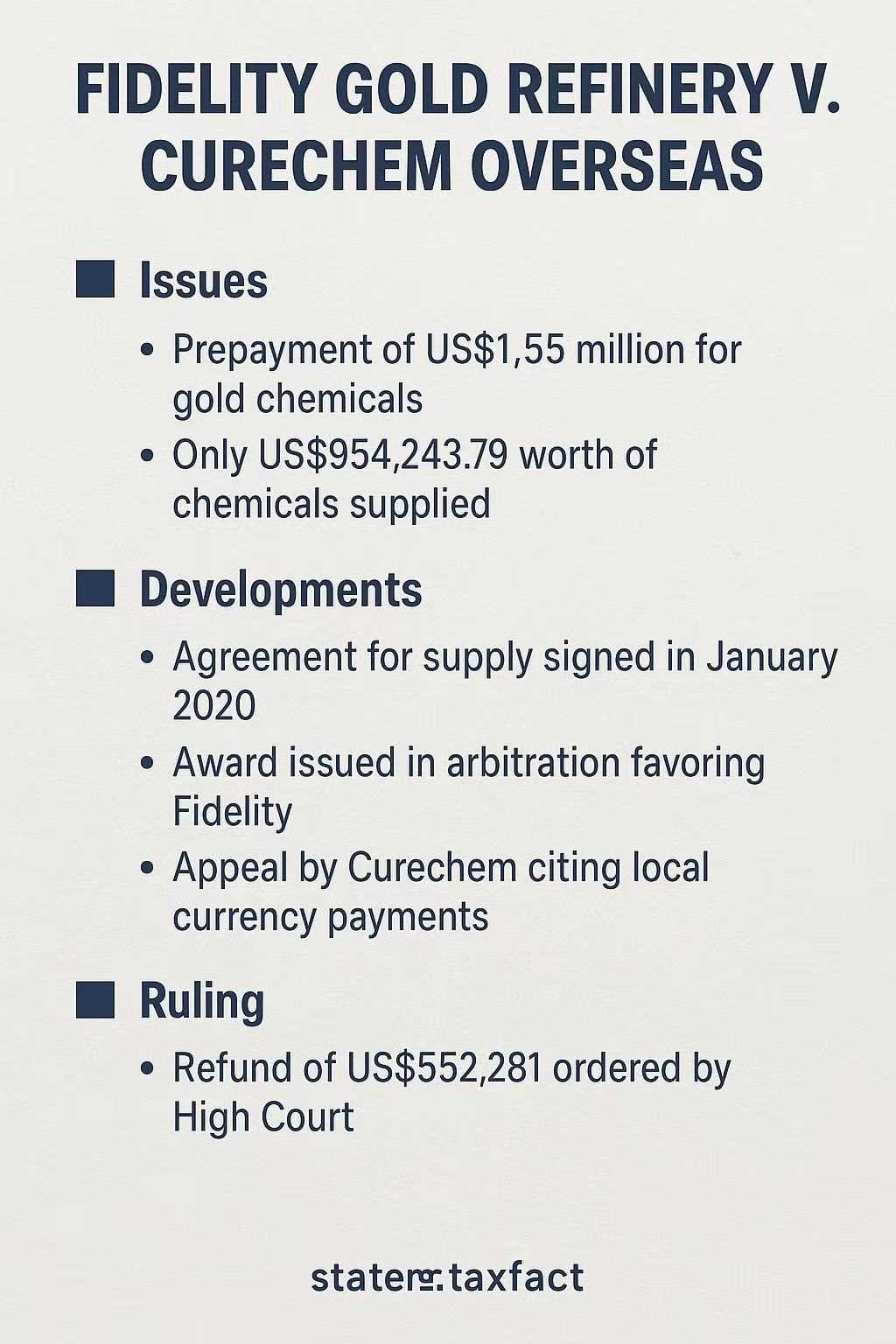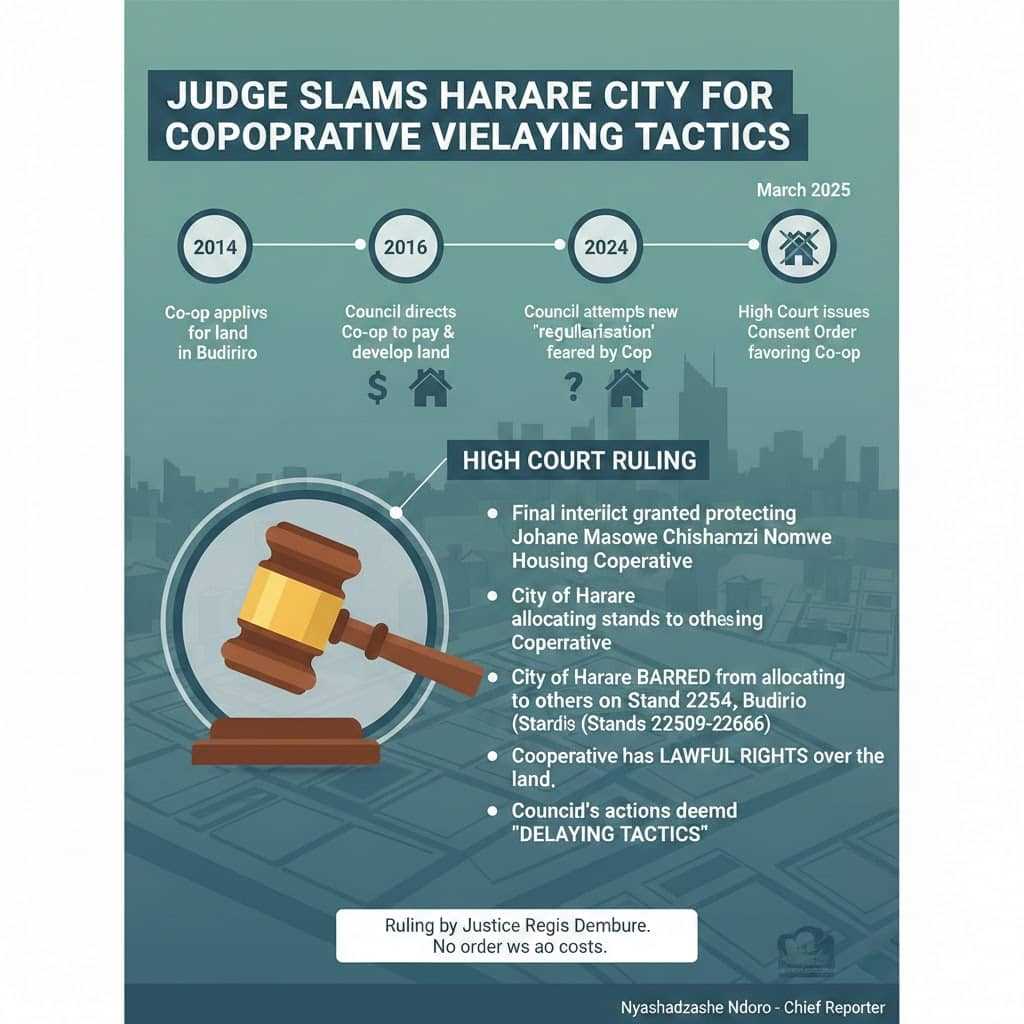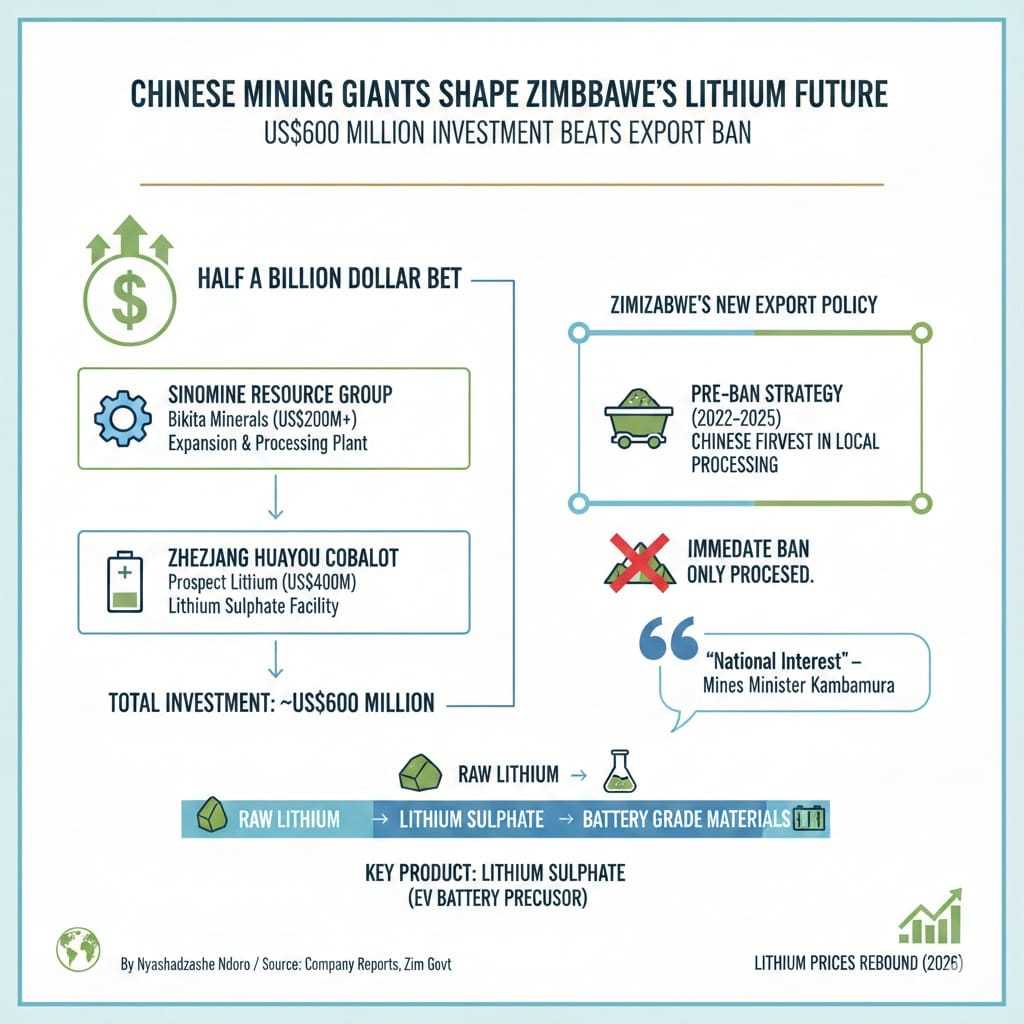
Philemon Jambaya
Zim Now Editor
The High Court has delivered a decisive blow in a financial dispute between Fidelity Gold Refinery and Curechem Overseas, ordering the latter to refund US$552,281.91 to the gold refinery. The ruling stems from a 2020 agreement where Curechem was contracted to supply gold processing chemicals to small-scale miners, with Fidelity Gold Refinery making a substantial prepayment.
According to court documents, the two entities entered into a one-year mining inputs supply agreement on January 5, 2020. Under the terms of the deal, Fidelity prepaid Curechem a total of US$1,551,045 for the procurement of various chemicals essential for gold ore mining and processing. These chemicals were intended for distribution to small-scale miners identified by Fidelity.
Related Stories
However, the court heard that between January 6 and May 27, 2020, only US$954,243.79 worth of chemicals were actually drawn down by the intended beneficiaries. This left a significant amount of chemicals, valued at US$596,801.21, unutilized and remaining in the possession of Curechem.
Following the expiry of the agreement on January 6, 2021, a disagreement arose concerning these unutilized chemicals. In accordance with the arbitration clause in their agreement, the matter was referred to arbitration, with advocate Tawanda Nyamakura appointed to adjudicate.
The arbitrator subsequently issued an award in favor of Fidelity Gold Refinery, compelling Curechem Overseas to pay US$552,281.91. Dissatisfied with this outcome, Curechem appealed the ruling in the High Court.
In their appeal, Curechem argued that they had made two payments to Fidelity in local currency, a claim contested by Fidelity, who insisted on payment in United States dollars as per the original agreement.
Justice Gladys Mhuri, presiding over the High Court case, affirmed the arbitrator's competence and the integrity of the arbitration process. "It is my considered view that the award was made after the arbitrator had made factual findings considering the evidence placed before him. Hence the court respects these findings," she stated in her ruling.
Justice Mhuri further emphasized the binding nature of arbitral awards and the reluctance of courts to interfere with such decisions. "An arbitral award is binding in nature and the courts are loathe to interfere with awards," she noted.
The judge concluded that Curechem had failed to demonstrate that the arbitral award was contrary to public policy, a condition that could potentially halt its registration. Consequently, Justice Mhuri granted Fidelity's application for the registration of the arbitral award dated May 28, 2024.
In her final order, Justice Mhuri stated, "In the result, it is ordered that the application for the registration of the arbitral award dated May 28, 2024 in favour of the applicant be and is hereby granted. Respondent pays the applicant US$552 281,91."




















Leave Comments